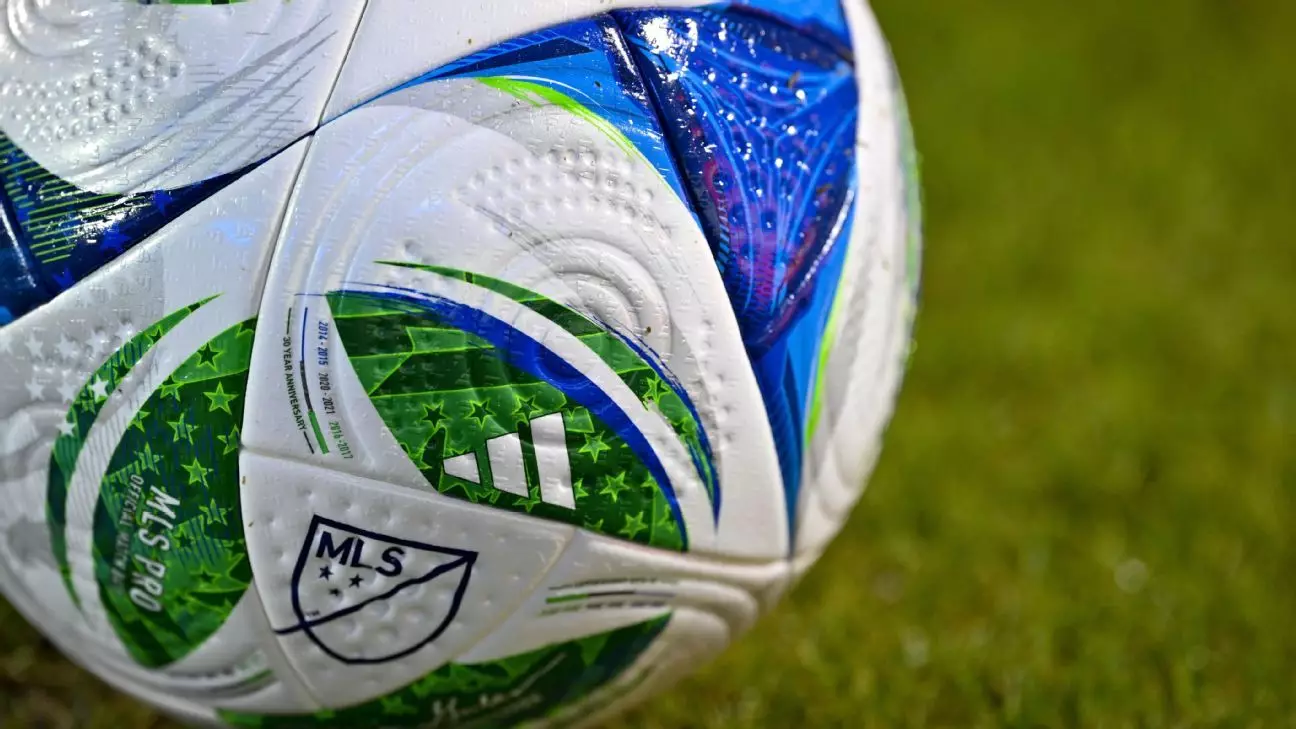The tension between Major League Soccer (MLS) and the MLS Players Association (MLSPA) is boiling over as the two sides grapple with critical discussions surrounding fair compensation for players participating in the FIFA Club World Cup. The Seattle Sounders FC ignited the conversation, becoming a symbol for players’ rights when they publicly protested at Lumen Field with shirts emblazoned with slogans like “Club World Cash Grab” and “Fair Share Now.” This act of solidarity challenged the current limitations on player compensation in lucrative international tournaments.
Previously, the collective bargaining agreement (CBA) stipulated that players would receive half of any money generated from outside tournaments, capped at $1 million. However, the MLS’s latest proposal, which would allow players from participating teams to receive only 20% of performance-related payments, is far from the expectations that players had for humble recognition of their efforts.
The Players’ Perspective
From the players’ standpoint, fairness isn’t merely about money; it’s about respect and acknowledgment of their hard work. In recent communications, the MLSPA has condemned MLS’s proposals as insufficient, highlighting that the league stands to gain $28.65 million from FIFA while players are being offered a mere $1 million for their effort. The union has emphasized that staying silent in the face of such blatant inequality is not an option. An atmosphere of disappointment and frustration permeates the player community, which calls into question the league’s commitment to its athletes.
This predicament showcases a broader narrative within professional sports, where financial gains tend to disproportionately serve the leagues and ownership, leaving players to grapple over the crumbs. The stakes are particularly high as the players prepare for the Club World Cup, a platform to showcase their talents on an international stage.
Negotiation Breakdown: A New Paradigm?
The breakdown in negotiations raises vital questions about how labor relations are structured in sports. The current CBA restricts players from striking over disputes that fall within its limits, cornering them into a defensive posture with limited options for disruption. While protected actions under federal labor law remain available, the players feel that their struggles are not against each other, but rather against a system that does not fully recognize their contributions.
The fact that MLS’s proposal is perceived as retaliatory only intensifies animosity and distrust. The league’s approach highlights a deficiency in valuing the workforce; such actions inhibit the development of a healthy collaborative relationship between the league and its players. A model that allows for open communication and negotiation is essential to cultivate a more positive atmosphere moving forward.
Impact on Player Focus and Spirit
As the Club World Cup approaches, the central conflict over compensation diverts critical focus from the game itself. The players are challenges to maintain their determination and spirit amid organizational turmoil. Performance in a prestigious tournament like this often hinges on mental preparedness and cohesion among team members, which can be adversely affected by financial disputes.
Moreover, the ongoing negotiations leave players caught between the dual pressures of wanting to excel in competition while advocating for their rights. This juxtaposition could overshadow performance outcomes, thereby taking away from the achievements and efforts made during the tournament.
Instead of fostering an environment of empowerment and motivation, MLS risks creating a backdrop of distraction that could ultimately reflect poorly on all involved. It is a classic illustration of how labor disputes can spill over into professional credibility and public perception, affecting not just the athletes but also the integrity of the league itself.
Seeking a Future of Collaboration and Respect
So, what lies ahead for MLS and the MLSPA? The stark truth is that for the long-term viability of the league and the players, a paradigm shift towards genuine collaboration and respect is required. If the league wishes to establish itself as a formidable player in the global soccer arena, it must start treating its athletes as invaluable partners rather than mere cogs in the machinery of profit.
Although the current phase of negotiations is thorny, the potential for a more positive and equitable future exists. There is an undeniable truth: when players are valued for their talents and contributions, it promotes better competition, enhances the overall experience for fans, and builds a more sustainable league. Empowering players by granting them their deserved share of revenues is not merely an act of goodwill; it is an investment in the future of soccer excellence.

